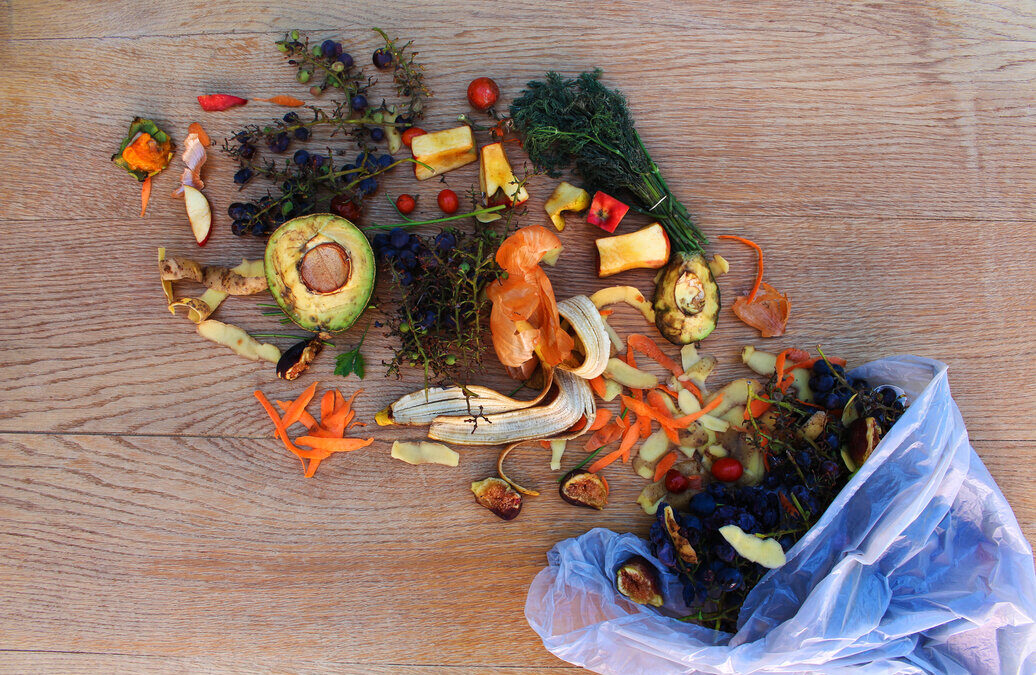According to Dubai Carbon, the UAE ranks among the top nations for waste generation per capita in the world with approximately 38% of food prepared everyday wasted. This jumps to approximately 60% during Ramadan. One of the best ways you can reduce your impact on the environment is to make sure you’re not throwing out food. Of course, it’s also great for your budget. Here are nine ways to do this:
Plan your purchases
Shopping takes a certain savvy. You want fresh food, but you also don’t want to buy too much that you will have to eat huge quantities the first day or two and have nothing that lasts until the next time you shop. Therefore, you need a mix of foods that are perishable and foods that will last longer. You also need to recall that plans can change, and you may eat out at the last minute. Therefore, plan for a little flexibility in your meals. If you don’t buy something, you won’t throw it out.
Put your food away so that it lasts longer
There are too many tricks to storing food to list them all, so here are just a few examples. Wilting celery can be revived by scraping off the end and putting it in water. Immature avocados can be ripened by putting them in a paper bag, especially with bananas. If there are types of food you especially like, research how to make sure you get the most of them.
If you buy several pounds of hamburger, divide it up into portions before you put it in the freezer, so that you can easily remove just what you need when you cook.
Finally, if something is about to go bad, cook it, even if you don’t eat it that day. Cooking food kills the bacteria that would ruin it and gives you more time to eat it. Alternatives to cooking include canning and drying.
Keep good containers handy
Packing food, either before or after you cook it, is much easier when you have right-sized containers with well-fitting lids. Although a purchase of new containers is an investment that will easily pay for itself, you can also find these containers for much less at estate sales. You can also use the containers in which some foods are originally packed, such as tubs for butter. However, as these are rarely transparent, you may want to put labels on them so no one finds leftover beans when they expected butter. If you’re averse to using plastics, effective alternatives are available, the foremost being glass.
Use those leftovers
If you just have small quantities of vegetables or other foods left, here are some things you can do to consume them. You can mix them together in a sauce, such as one based on curry, cheese, or tomatoes. You can use leftovers in omelets or in stir-fries. You can add them to soups or stews. You can roast combinations of veggies in the oven or add them to the tops of frozen pizzas. Leftovers also make good lunches, but if your leftovers tend to pile up, dedicate regular evenings to eating leftovers.
Get more out of what you buy
Often you can get more from your purchases. For example, if you buy a fresh cauliflower, you can eat all of it. The leaves take less cooking than the florets, while the stems take more, although if you slice them thin, that helps.
Rinse out your cans to get every last bit; this means less mess when you recycle, too. Slice open tubes and plastic containers to reach the last drops of ketchup and mustard. Note this technique works for toothpaste and shampoos as well.
If you like pickles, use the pickle juice after the pickles are eaten. You can simply re-use the liquid by adding fresh veggies. You can also drink the pickle juice, either straight or diluted with water; some people swear this is fabulous for rehydration. You can add the juice to marinades or to other dishes. Finally, if you don’t feel comfortable consuming it, use it to clean, especially copper.
Some of your purchases will supply you with more than one serving. The root ends of spring onions, if placed in shallow water, will give you fresh green stalks. The same is true for heads of lettuce and bunches of celery. Scrape off the ends and plunk them in a bowl and watch new leaves sprout. Be sure to change the water often.
Postpone grocery shopping
Not everyone’s situation permits them to do this, but if yours does, taking a week off from shopping is a way to cut down your food waste and to save you a trip. Eat down the fresh food first, then eat down the stores in your freezer and your pantry. Use some of the staples: the beans, the pasta, the rice, and some of the dusty jars and cans. This also allows you to restock with supplies with later expiration dates.
Monitor the expiration dates
You want to consume food before it goes bad. Many foods can be consumed well after their sell-by dates, but this is a personal decision for you to make. Also, certain foods take a long time to expire, while others never expire, such as salt and many sugars. At any rate, you should be aware of what food is getting older and find a way to use it before it’s too late.
Give it away
Face it, sometimes a food purchase turns out to be a mistake. Perhaps no one in the family likes it. Perhaps you discover it contains an ingredient to which you’re allergic. Instead of throwing it away, you can often give it away, such as to friends, neighbors, or even your local food bank. If you decide something needs to be given away, do it sooner rather than later, so that it does not have the time to go bad.
Compost the remains
A compost heap is a great way to recycle the scraps of food that cannot be eaten. Some items, such as coffee grounds, can be scattered directly in flower beds, but make sure your plants will welcome them.
If food waste could be eliminated, no one would need to go hungry, and we could reduce greenhouse gases, water, fertilizers that pollute, and the amount of land devoted to agriculture. Besides, reducing your food waste saves you money. A little bit of planning will make a difference to you and to others.


Recent Comments